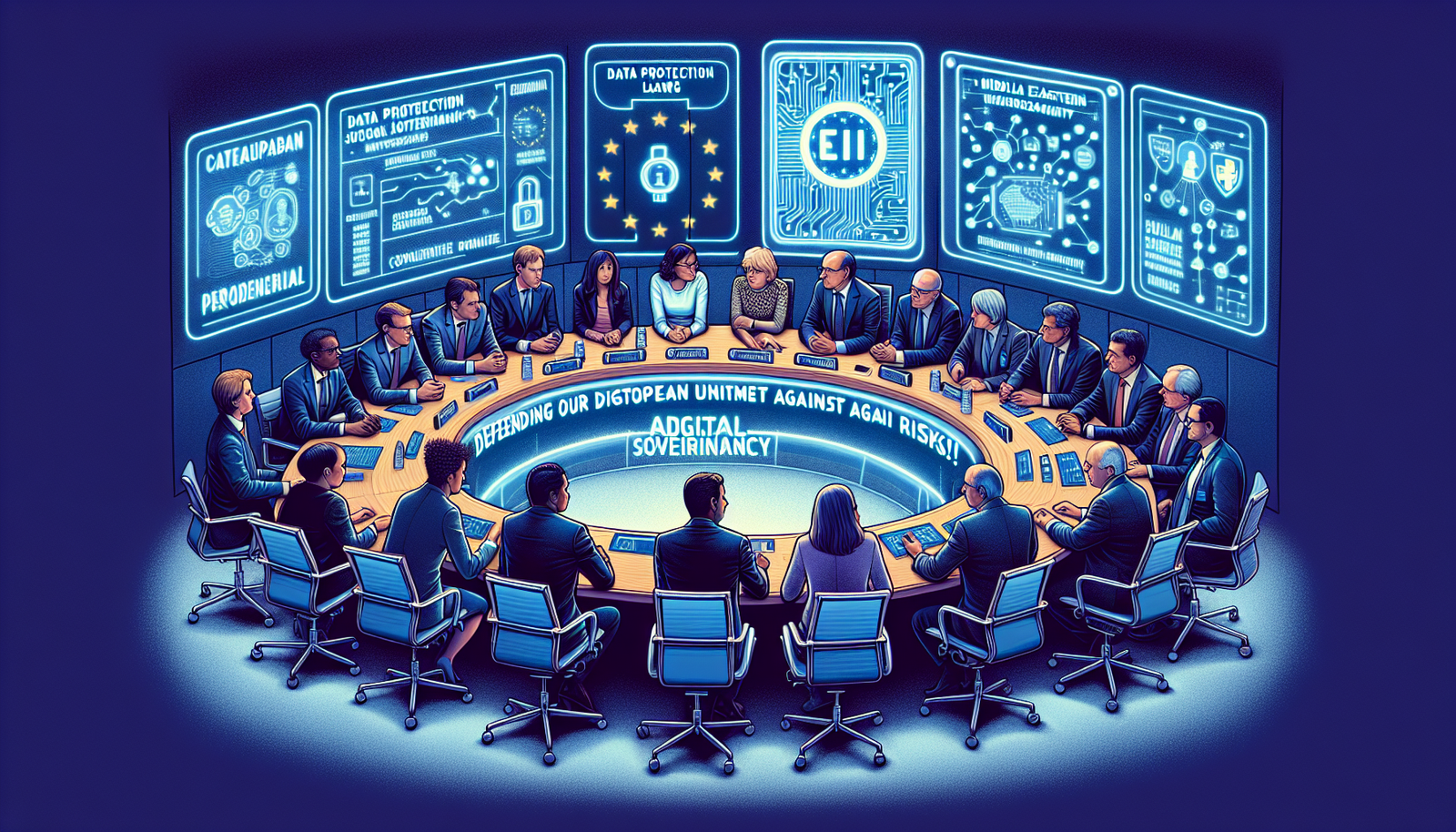The swift emergence of artificial intelligence embodies a major turning point for the digital sovereignty of Europe. The activation of data protection authorities is becoming urgently necessary, in the face of the threat posed by the exploitation of personal data. Regulations must be rooted in an encompassing framework, ensuring both innovation and the preservation of citizens’ fundamental rights. This colossal challenge requires effective consultation among governance stakeholders to build a protective bastion against potential abuses. The digital future of the continent relies on the ability to balance security, innovation, and individual rights.
Data protection authorities working to regulate AI
Data protection authorities in Europe are actively mobilizing to regulate artificial intelligence and data, feeling the urgency for coordinated action. In the face of the inexorable rise of AI, these institutions aim to guarantee the fundamental rights of European citizens. The interaction between AI governance and data protection is proving crucial in establishing a technological environment that respects individual rights.
Data and AI governance: a legislative framework under construction
The current legislative framework, consisting of the GDPR, the AI Act, and the Data Governance Act, establishes robust foundations. These regulatory texts initiate a regulatory process to frame the use of data and artificial intelligence systems. However, the need for strengthened oversight is clearly felt. Existing regulations, while solid, need to be relaxed to ensure effective implementation and to truly serve the citizens.
Data intermediaries: catalysts for transparency
One of the key tools proposed by the Data Governance Act lies in the establishment of data intermediaries. These neutral trusted third parties aim to create increased transparency in the use of personal information by AI. Their role consists of facilitating users’ control over their data and ensuring that they can genuinely exercise their rights. Despite the potential of these intermediaries, their effectiveness is compromised by the lack of clear obligations imposed on private stakeholders.
Education: a priority for citizen engagement
Raising awareness among citizens about the management of their data is a major challenge. Users must understand the implications of the collection, storage, and use of their information. Organizations are committed to informing their users about the purposes of their data, so as to enable informed choices. However, the actual implementation remains tricky, with access processes often being obscure and cumbersome.
Cooperation among regulators: a necessity for unified governance
Effective coordination among various regulators is crucial to strengthen data protection. These regulators, whether in competition, telecommunications, or AI, need to work together to reduce regulatory fragmentation and promote harmonized governance. Discrepancies between regulations create gaps, leaving citizens exposed to increased risks related to the exploitation of their data.
The United States: a model lagging behind
In comparison, the United States adopts a different approach to regulation. U.S. authorities often prioritize innovation over the protection of individual rights. The recent veto by the California governor of the SB 1047 law, which aimed to impose strict standards on tech giants, demonstrates this philosophy. The attachment to innovation without strict regulation creates a disturbingly adequate dynamic.
The potential benefits of effective regulation
A sound regulation of the AI and data sector can encourage innovation by facilitating access and sharing of data. By establishing a robust normative framework, market players will be more inclined to develop new technological tools without encountering legal obstacles. Furthermore, pooling data in well-structured spaces could lead to significant advancements in fields such as education.
Taking AI warnings seriously
Recent incidents, such as Elon Musk’s controversial actions at the “We Robot” event, raise legitimate concerns about the impact of AI. These uncertainties reveal the need for heightened vigilance in the face of the rising influence of tech companies in the sector. Regulations must anticipate and counter the undesirable effects of excessive autonomy granted to large players.
Europe: a favorable position for the digital future
With a constantly evolving regulatory framework, Europe positions itself as a global leader in data protection and AI. These fundamental initiatives reinforce the digital sovereignty of the continent. The establishment of effective regulations constitutes a guarantee of trust for users, thereby allowing innovation while preserving citizens’ rights. The commitment of regulatory authorities is imperative, particularly to institute a pragmatically broad reference framework.
Anthropic introduces control over AI, reinforcing the need for a solid regulatory framework. The evolution of AI and data systems must respond to contemporary challenges and anticipate future needs. While nations vie to establish standards, European engagement could dictate the rules of the game on a global scale.
Frequently Asked Questions
Why is it important to regulate AI in Europe?
It is crucial to regulate AI to protect citizens’ rights, ensure transparency, and promote ethical innovation, while preserving Europe’s digital sovereignty.
What are the main data protection regulations in Europe?
The main regulations include the GDPR, the AI Act, and the Data Governance Act, which establish standards for data protection and transparency requirements for the use of AI.
How do data protection authorities ensure companies comply with these regulations?
Authorities conduct audits, impose penalties on non-compliant organizations, and provide guidance on best practices to comply with data regulations.
What is the call made by European data protection authorities, and why is it significant?
The call aims to strengthen cooperation among regulators to generate synergies in data and AI protection while requesting the integration of neutral trusted third parties for effective governance.
How does the Data Governance Act contribute to data transparency?
The Data Governance Act introduces data intermediaries, which ensure transparency about how data is used by AI systems, allowing for better control by users.
What role does citizen education play in data and AI regulation?
Education allows citizens to understand how their data is used, become aware of associated risks, and helps them effectively exercise their rights.
What challenges does Europe’s digital sovereignty face regarding AI regulation?
The challenges include the need to harmonize regulations among member states, strengthen international cooperation, and ensure that regulations do not hinder technological innovation.
How does Europe’s approach to AI regulation differ from that of the United States?
While Europe prioritizes data protection and citizens’ rights, the United States often prioritizes innovation and business freedom, which can lead to disparities in protecting fundamental rights.
What measures can be taken to improve coordination among data regulators in Europe?
Creating collaboration platforms, sharing best practices, and establishing common standards can facilitate better coordination among data regulators.






